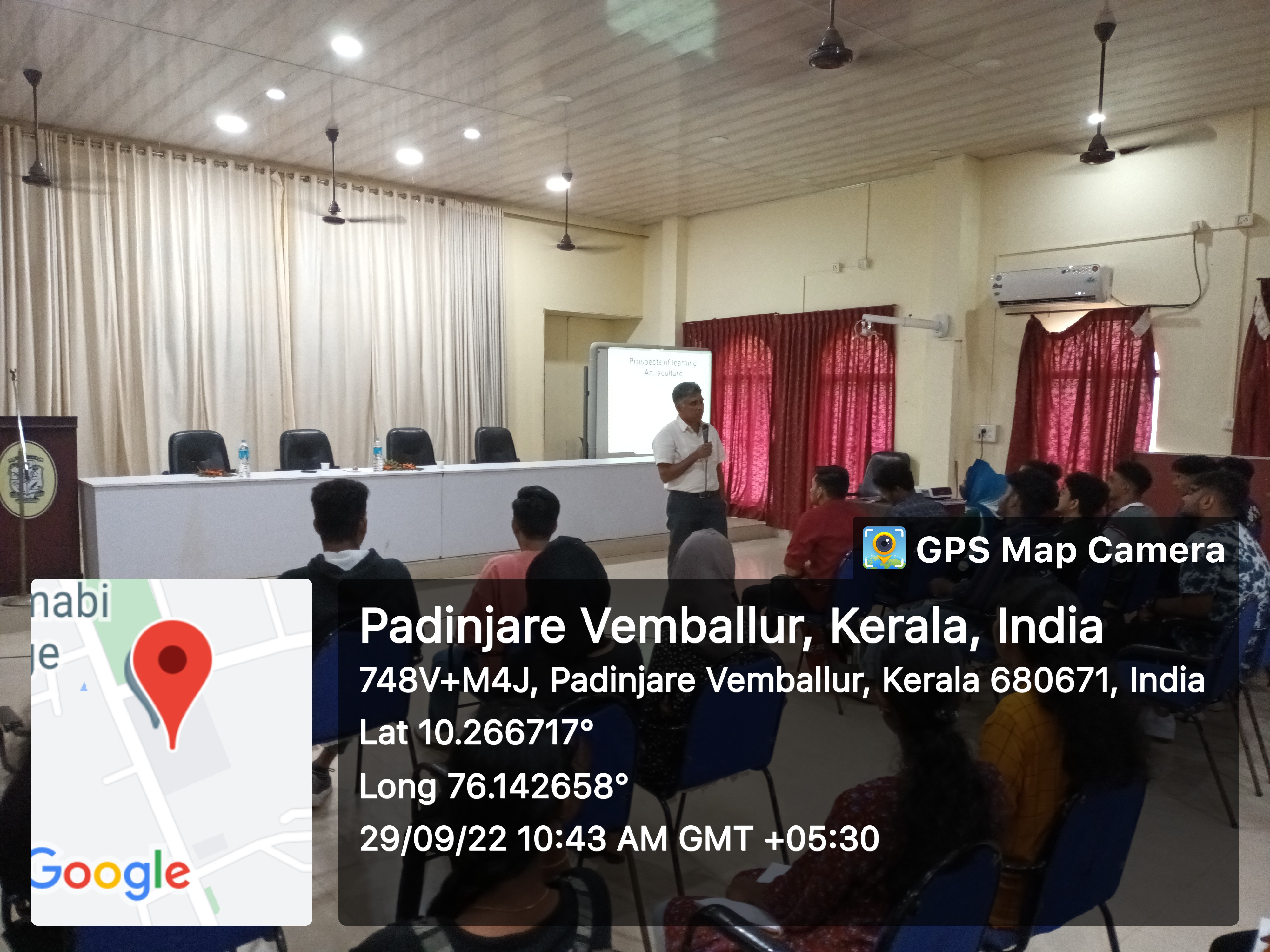
The programme was held as a part of orienting the newly admitted students to their programme of study. The inaugural session started at 10.00 AM with a prayer by Ms. Lenitha Binu, I Semester student. Dr. K Kesavan, HoD and tutor of the new batch welcomed the gathering. Principal Dr. A Biju delivered the presidential address during which he spoke of the resource person’s suitability to lead the programme and the uniqueness of B.Sc. Aquaculture programme. Sri. Shibu A Nair, Associate Professor gave a formal vote of thanks to the inaugural session. The academic session began at 10.20 AM. Dr. Hatha congratulated the student sfor opting B.Sc. Aquaculture as their choice especially when the world’s top priority is alleviating the poverty and ensure nutritious food. Aquaculture has gained grip on global economy not only as a bread winner but a bloomed industry bringing big quantum of foreign exchange to the nation. Blue economy has already emerged as a sector of substance for business and trade. Dr. Hatha spoke on the powerful role of positive thinking in personality development. Need of in-depth awareness in social happenings and current affairs are necessary to emerge as full-fledged personality in the prevailing global professional scenario. The status and scope of fisheries and allied sectors including aquaculture, hatchery production, feed manufacture, ornamental fish industry, sea food processing etc were also given by the resource person. He introduced advanced aquaculture methods like RAS, aquaponics, and bio-floc, and the possibilities of exploring its utilities in career and entrepreneurial field. Our country is still lagging behind in exploitation of fisheries sector in spite of having vast coastal belts. Hence there is ample scope for starting coastal aquaculture enterprises. He said aquaculture specialists can explore such opportunities. World hunger index can be decreased to 30% by 2030 by just the boosting of blue economy, he underlined. And perhaps this is the only solution to counter the 51% growth dip in capture fisheries. Culture fisheries are expected to grow from 49% to 62% by 2030. Dr. Hatha said, advancements in information and communication technology, modern software applications etc. are another avenue for higher studies and research in aquaculture. Advancements in open cage farming, GPS and GIS applications have contributed tremendously to fisheries and aquaculture. The youngsters are asked to exploit the sea of connectivity available to them today to widen their knowledge domain. As an example he cited the new trend of utilising underwater drone and sensor based monitoring of water quality and cultivated animal behaviour/health observation practiced in modern farms. Need of extra reading and social orientation were underpinned by Dr. Hatha to grow as a successful personality. As an addendum to the programme Dr. Hatha explained his experiences during his expedition to southern ocean with a marvellous slide show.

